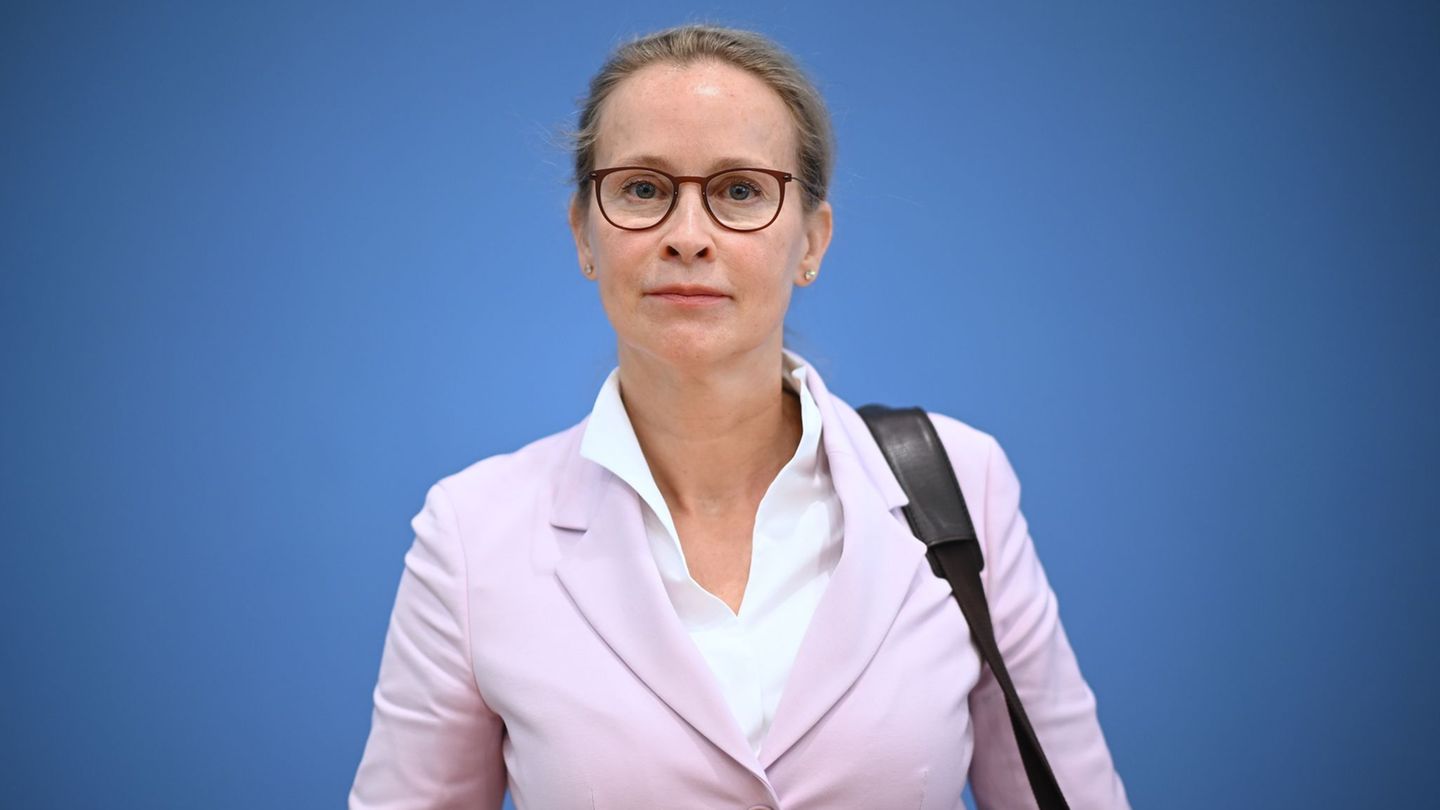Federal election campaign
The CDU and CSU want to establish a new style of government
Copy the current link
There was a lot of noise at the traffic lights. Also publicly. Union chancellor candidate Merz promises a different leadership style if he wins the election. And the CSU also has ideas.
Union Chancellor candidate Friedrich Merz wants to impose a new leadership style in the federal government if he wins the election. The CDU chairman made it clear in an interview with the German Press Agency that he does not want to allow a long-term public dispute in a coalition. CSU regional group leader Alexander Dobrindt called for more efficient cooperation between future government partners. In addition to a new type of coalition agreement, the coalition committee should play an important role.
“It’s normal for there to be struggles in a government coalition,” said Merz. “But we have to put an end to the constant public disputes of the past. The citizens want the country to be governed sensibly.” According to the CDU leader, he wanted to conduct a dispute without a public dispute. “I wouldn’t allow two of my most important ministers to argue publicly about the media for months and for the Chancellor to sit by like an uninvolved third party.”
Merz was alluding to the leadership style of Chancellor Olaf Scholz (SPD) and the disputes between the then Finance Minister Christian Lindner (FDP) and Economics Minister Robert Habeck (Greens). The traffic light coalition of the SPD, Greens and FDP collapsed at the beginning of November. A new Bundestag will be elected on February 23rd.
Dobrindt wants to give the coalition committee more power
Dobrindt is also pushing for a different working style in a Union-led federal government. “We also have to take new paths in government work,” said the chairman of the CSU Bundestag members of the German Press Agency. This includes giving the coalition committee a stronger role. “The coalition committee will have to become its own instrument of power to resolve disputes and reach compromises.” The committee includes members of the government as well as representatives of the coalition parties and factions.
The current electoral period has shown “how quickly coalition agreements become obsolete because they simply no longer have the possibility of being enforced due to external events or are no longer adapted to the challenges,” criticized Dobrindt. New-style coalition agreements “must be narrower, leaner, more targeted in order to describe a change in policy” and be able to react more flexibly to external influences.
The measures necessary for a policy change would have to be initiated in the first six months of a new government. “Very quick results are needed to put Germany on the right course.” The coalition agreement would then have to be continued later depending on the challenge.
Merz: We have to be able to look each other in the eye after the election
Merz responded to the question of what role the coalition committee would play in a government he led: “In my opinion, the coalition committee must meet regularly and not only meet in the event of a crisis.” The committee is “important because the parties and parliamentary groups are also involved and not just the ministers. And that’s why a coalition committee is a good institution.”
When asked about the recent verbal exchange with Chancellor Scholz, who countered Merz’s attacks with the sentence, “Fritze Merz likes to talk nonsense,” the CDU chairman appeared calm. “These statements from the Chancellor stand for themselves and work for themselves. Everyone has to find their own style,” he said. Tünkram is Low German and means something like stupid stuff.
He explained the rough style at the start of the election campaign by saying that the Social Democrats were on the defensive with poor poll numbers. “And that’s why the SPD is now starting to become aggressive.” If he has his way, it won’t be a dirty election campaign. “We want to convince people with better arguments,” said Merz about the Union.
With a view to future negotiations about government constellations, he said that there would not only be the federal election on February 23rd, but also the day after. At this point, “the democratic parties in the political center in Germany must fundamentally be able to speak to one another and still be able to look each other in the eye.” Merz added: “I can only ask the competitors to also look ahead to February 24th.”
dpa
Source: Stern
I have been working in the news industry for over 6 years, first as a reporter and now as an editor. I have covered politics extensively, and my work has appeared in major newspapers and online news outlets around the world. In addition to my writing, I also contribute regularly to 24 Hours World.




